Richard Burridge remembers Desert Orchid’s final King George VI Chase victory at Kempton
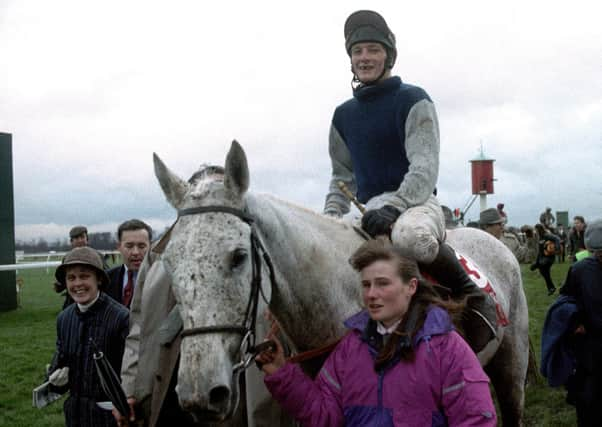

This was when the universally adored and admired ‘Dessie’ rolled back the years to win a historic fourth King George VI Chase at Kempton, beating Wayward Lad’s feat.
And while Kauto Star, another horse for the ages, eclipsed this by winning five King Georges, the celebrated race will always be synonymous with Desert Orchid.
Advertisement
Hide AdAdvertisement
Hide Ad“He was always a Christmas horse,” says Burridge, who co-owned Desert Orchid with his late father Jimmy who bred the champion, stepmother Midge and Simon Bullimore who was persuaded to buy a share in the chaser’s infancy.
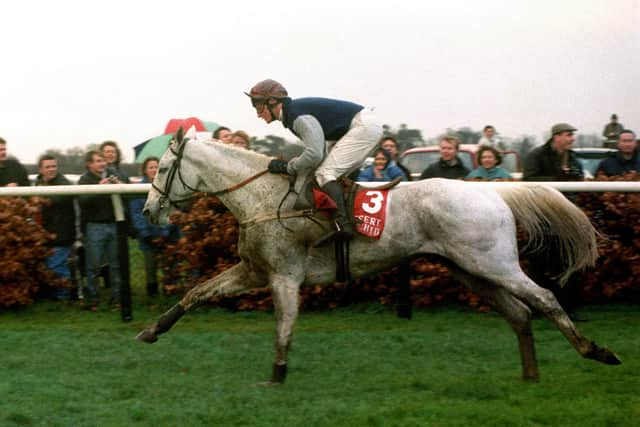

“We certainly associated Christmas with him. A lot of people did. He was born with great soundness which was a great a blessing. He was a blessing.”
The scriptwriter is speaking to The Yorkshire Post from the North York Moors where Dessie would spend his summers in the latter years of his racing career before going back into training with the irascible David Elsworth. A front runner who fell so heavily at the final flight on his racing debut – ironically at Kempton – that it was feared his first race would be his last, he would become racing royalty because he was so prolific.
Proficient from two miles to three miles, five furlongs when winning an Irish Grand National, he had the guts to gallop through Cheltenham’s remorseless and unremitting mud to win a Gold Cup in March 1989.
Advertisement
Hide AdAdvertisement
Hide AdBut his heroics on that iconic, rain-sodden day did take their toll and the belief was that Desert Orchid was past his best when he sought a fourth King George in December 1990.
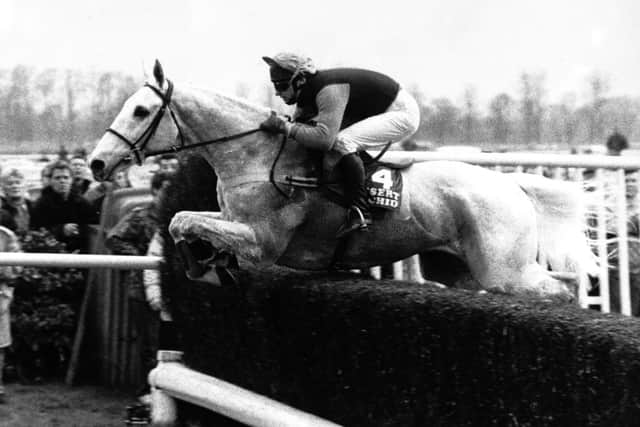

Burridge also has an intriguing observation after noticing that winners of the King George, a three-mile Grade One race on a flat track, are invariably higher rated than the horse that lands the Gold Cup over three and a quarter undulating miles.
“I have often felt Kempton rewarded brilliance while Cheltenham was a course that punished mistakes,” he ventured before suggesting the Surrey track’s triangle shape provides a chance for horses to have a breather.
“I am certainly not decrying Cheltenham and it was great to win the Gold Cup, but it takes something out of horses. It bottoms them out.”
Advertisement
Hide AdAdvertisement
Hide AdTime was certainly catching up with ‘Dessie’ as he sought a fourth King George – but the horse’s resilience was matched by the aforementioned Elsworth who has never lacked self-doubt.
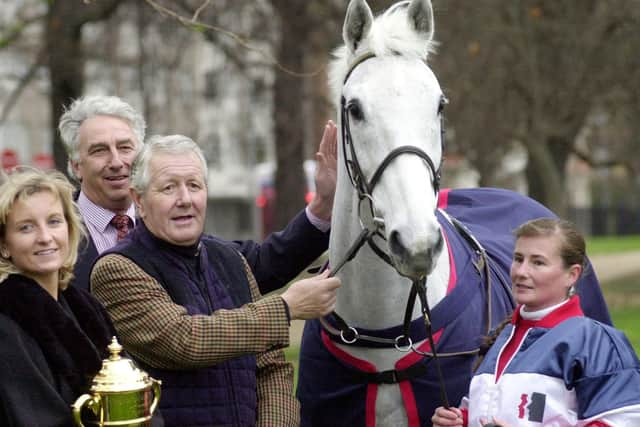

Speaking to this paper, he recalled the day when the racing media told him that the horse needed two miles – and fast ground. “I wasn’t trying to prove anyone wrong. Everyone gets things wrong but he loved to race,” he bristled.
There was also some consternation that ‘Dessie’ hadn’t fired in the Haldon Gold Cup at Exeter and then the Tingle Creek Chase at Sandown.
Yet the latter was put down to a bruised foot, the ‘Dessie’ team were sworn to secrecy while Elsworth worked miracles, and the horse headed to Kempton as an underdog – a status that connections actually enjoyed.
Advertisement
Hide AdAdvertisement
Hide AdIt enabled the trainer to enjoy a gin a tonic with the Queen Mother – “she often turned up on Boxing Day with an orchid” – while Dessie’s owners rode racing’s roller coaster from “wild optimism to deep pessimism” according to Burridge.
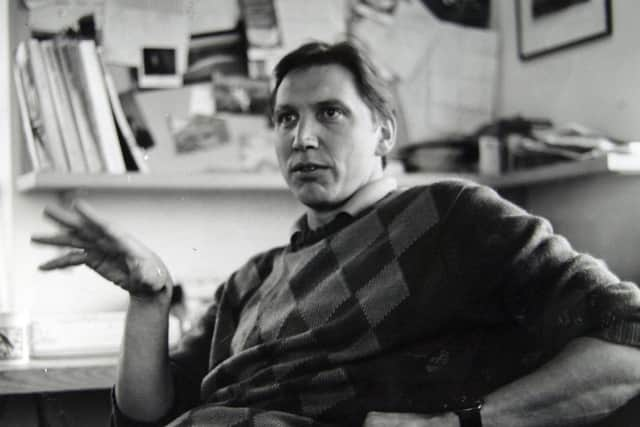

“We were reasonably confident that he was as good as he could be under the circumstances, but not as good as the year before,” he went on. “There were very few horses who could match his speed and attack the fences at Kempton.”
So it proved. Always prominent under Richard Dunwoody, Dessie’s flamboyant jumping lit up a dull, grey day and he was cheered as he past the post on the first circuit. However, the race changed complexion on the second circuit when the front-running Sabin Du Loir came down seven out and ‘Dessie’ had to take evasive action.
Not only was the grey warrior nimble, but he then produced a series of athletic jumps over the next three fences that did not give Jenny Pitman’s Toby Tobias, the closest pursuer, a chance.
Advertisement
Hide AdAdvertisement
Hide AdAnd, after turning for home, Dessie and Dunwoody were simply imperious over the final three fences as they sauntered home to the acclaim of the crowd.
As Graham Goode, commentating for Channel Four Racing, told viewers: “This was his race, Desert Orchid, watch history being made, roars of applause, the King’s in his counting house, Desert Orchid’s blooming, he’s been here before, Desert Orchid the winner, marvellous!”
Even now, Burridge describes the day as “a blur”. The following year Desert Orchid fell heavily at the third last and galloped home, riderless and alone, before his retirement was confirmed.
Yet he remains in awe of the horse’s longevity by pointing out that the 1990 King George was his champion’s 65th race – and that today’s steeplechasers are trained far more conservatively.
Advertisement
Hide AdAdvertisement
Hide AdFor this, he pays tribute to Elsworth and his team for getting the best out of a horse who was largely sound until his latter years when he needed more work to get into top condition.
He is also aware that there was a time when the trainer “didn’t enjoy it so much” because the sport has a habit of “blowing up in your face” if you chance your luck one time too many.
“But when people were writing Dessie off, that was like the gun going off for David,” added Burridge. “He was the perfect trainer for the horse – I can’t believe there is another person who could have trained Dessie as brilliantly as he did.”
Support The Yorkshire Post and become a subscriber today. Your subscription will help us to continue to bring quality news to the people of Yorkshire. In return, you’ll see fewer ads on site, get free access to our app and receive exclusive members-only offers. Click HERE to subscribe.
Comment Guidelines
National World encourages reader discussion on our stories. User feedback, insights and back-and-forth exchanges add a rich layer of context to reporting. Please review our Community Guidelines before commenting.